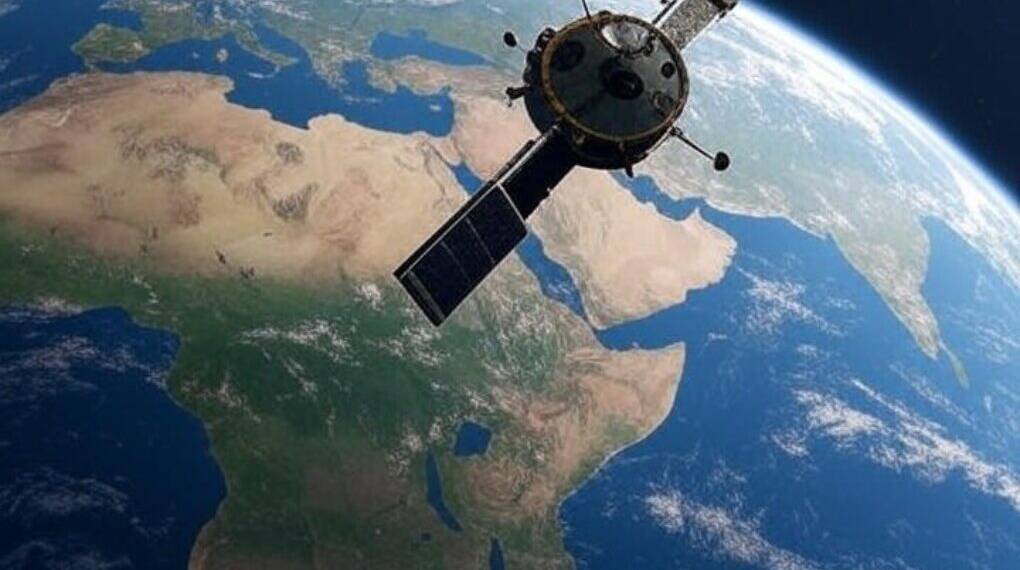Back in May, as Russia marked its annual Victory Day celebrations with the customary military parade in Moscow, television viewers in Ukraine suddenly found their regular programming hijacked.
Instead of local broadcasts, their screens filled with waves of tanks, soldiers, and heavy weaponry rolling across Red Square. The intrusion was not the work of Ukrainian broadcasters but of Kremlin-backed hackers who had hijacked an orbiting satellite providing TV service to Ukraine.
The incident was more than just a stunt. It underscored a new and alarming dimension of modern warfare: the extension of hostilities from land, air, and sea into the uncharted realm of outer space. By disrupting a satellite’s signal, Russia’s cyber operatives demonstrated how space-based systems—vital to communication, navigation, and defense—can become psychological and strategic weapons in conflict.
Satellites: From Silent Helpers to Strategic Assets
The Earth’s orbit is crowded with more than 12,000 active satellites. These machines are far from passive observers; they form the backbone of everyday life. Satellites enable GPS navigation, facilitate banking transactions, manage global supply chains, monitor weather, and provide the military with intelligence, surveillance, and secure communications.
This indispensability also makes them a national security vulnerability. A successful attack on satellites could disable critical infrastructure without a single shot being fired. Unlike conventional warfare, where damage is physical and localized, disrupting space assets can create confusion and paralysis across entire regions.
As Tom Pace, CEO of cybersecurity firm NetRise, explained, “If you can impede a satellite’s ability to communicate, you can cause a significant disruption. Imagine if a population lost GPS and the chaos that would cause.”
Ukraine as the Testing Ground
Russia’s war in Ukraine has already provided real-world examples of satellite disruption. On the morning of February 24, 2022—the day Russian forces launched their full-scale invasion—hackers attacked the U.S.-based satellite company Viasat, whose services were used by Ukraine’s government and military. Malware was deployed to infect tens of thousands of modems, causing widespread outages not only in Ukraine but across parts of Europe.
Kyiv quickly blamed Moscow for the attack, and subsequent investigations by Western intelligence agencies pointed in the same direction. The sabotage temporarily crippled communications for Ukrainian forces at a crucial moment and highlighted how cyberattacks on satellites can be used to complement kinetic military operations.
The more recent Victory Day hijacking further revealed Russia’s appetite for using satellites as tools of psychological warfare. Forcing Ukrainian households to watch Russian military parades was less about tactical advantage and more about intimidation, signaling that Moscow’s reach extended into the very fabric of everyday life—even the living room television set.
Vulnerabilities in Orbit
Despite their importance, satellites are not invulnerable. Hackers often exploit the weakest link in the chain—outdated software, unsecured communication links, or ground-based infrastructure. Even if the satellite itself is well-protected, its terrestrial support systems may remain exposed.
Moreover, satellites are difficult to repair once deployed. Unlike servers on Earth, they cannot be easily patched or replaced, making long-term cybersecurity a daunting challenge. Many satellites were launched decades ago, running on aging systems not designed for today’s hostile cyber environment.
The rise of commercial satellite networks has further complicated the landscape. While companies like SpaceX, Viasat, and OneWeb provide critical connectivity, they also create new attack surfaces. State-backed hackers can now target not only government systems but also private enterprises whose services are intertwined with national security.
The Nuclear Shadow
Beyond cyberattacks, national security officials have warned of an even graver threat: the development of space-based nuclear weapons. According to U.S. intelligence reports, Russia is exploring a nuclear-powered system capable of wiping out vast swaths of satellites in low-Earth orbit. Such a weapon would combine physical destruction with electromagnetic pulses (EMPs) strong enough to fry satellite electronics.
If deployed, it could cripple communication, navigation, and surveillance systems across the globe in a single strike. The cascading effect of debris from destroyed satellites could also render parts of Earth’s orbit unusable for generations, choking off space access for all nations.
While Russia has not confirmed such capabilities, the very possibility raises the stakes in the growing militarization of space. The United States, China, and India are also expanding their anti-satellite (ASAT) programs, leading to fears of a new arms race above the Earth’s atmosphere.
The Future of Space Warfare
The Ukraine war has shown that space is no longer a sanctuary but an active theater of conflict. What began with a satellite hijacking for propaganda purposes could escalate into battles that determine the fate of entire economies and militaries.
Protecting satellites requires both technological innovation and international cooperation. Stronger encryption, frequent software updates, and the development of resilient systems capable of rerouting signals are some of the immediate steps. At the same time, global agreements—similar to arms control treaties on Earth—may be necessary to prevent catastrophic escalations in orbit.
For now, one lesson is clear: the war in Ukraine has expanded the playbook of modern conflict. From cyberattacks on modems to the specter of nuclear space weapons, satellites are no longer just silent helpers orbiting above us—they are contested assets in the wars of the 21st century.








